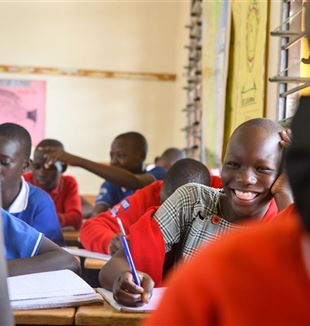
AVSI: How good is multiplied
AVSI’s "distance support" activity is something that goes far beyond economic aid to children in developing countries. In Uganda, for example, it has been "building a world" since 1993.To understand what it is, just look at Dickson and how he helps educate the children of "Luigi Giussani," the elementary school in Kampala where he works as a teacher. It is not just a matter of classrooms and notebooks, he actually pays the tuition fees of some of the students. "He was supported from a distance when he was little, now he wants to be the one to help others," says Alberto Repossi, Distance Support (Sad) manager for AVSI in Uganda. "There are many people like him. It is a matter of gratitude: they recognize that without that help they could never have studied and grown up. And if they can, they decide it is their turn now to help."
If we still think of Distance Support as the old "long-distance adoption," an effective but sometimes reductive practice (the sponsor sends the money, the child uses it to study, and everything ends with the family), stories like Dickson's, and others like him, help bring everything back into focus. Not only because "adoption" has long since fallen out of use as a word ("the children almost always already have families; they are not replaced, but helped," AVSI explains), but because the horizon is much broader than the walls of a home. It starts there, from a child and a particular story, but it generates more, it grows into something that affects everyone. "It builds a world," Repossi says.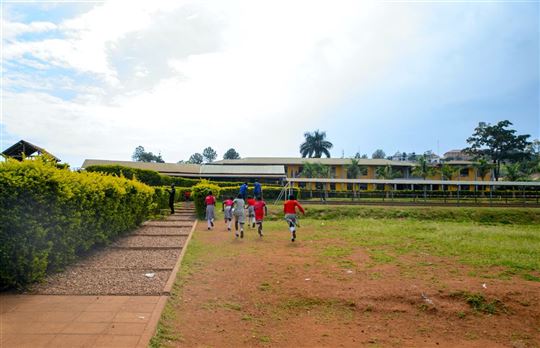
In Uganda, Distance Support began in 1993. Today it helps 3,270 children and young people, helped by 3,700 sponsors (some situations need more support). Many are pupils of the two "Luigi Giussani" schools (the elementary and high school, born in the slums of Kampala and part of the network of extraordinary realities that were born around Rose Busingye), many others are not. They receive support for school fees, materials to use in school, catch-up classes. But they also go to college, learn a trade, start a microenterprise. Or they simply take a different path from the one that often faces "the totally marginalized, the adults who have no qualifications at all and see the younger generation coming up and taking their place," Repossi explains, "We try to give them apprenticeships in companies, retrain them. It often works."
Help is often extended to families, and almost always extends over time. "The heart remains education. But Distance Support is not a project: it is a program," Repossi notes, "It is the only activity where the supporter can guarantee participation over years, from elementary school to graduation. In some cases, even up to college. It is a long cycle, it allows you to put down roots and make connections." And, indeed, it helps to build.
A network of partnerships has formed around Distance Support here in Uganda. Twelve entities are involved, in eight districts: from the Salesians in Kampala to the St. Jude Children's Home in Gulu, from the Kiyunga Social Service Center in Luuka, to the Discharged Prisoners’ Aid Society in Wakiso, and so on. They signal those who are in need, and then AVSI finds sponsors. But the result is a web of connections that multiplies the good.
Repossi says that this year he has been travelling a lot, meeting with partners. "And I realized that Distance Support helps generate places where people can grow: schools, centers, associations, oratories.... Places where people come together and help each other. You know the African proverb, right? ‘It takes a village to educate a child.’ Well, it is true. It is something that goes far beyond families."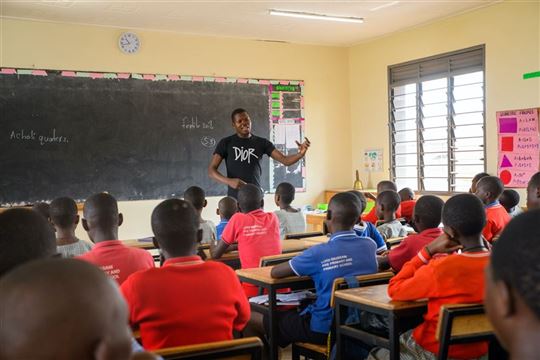
For example, he speaks about Vincent, who grew up with the women of the Naguru Meeting Point (a slum family aid center) because his mother did not have the means to support him, and now he is going to college. "He is studying dentistry," Repossi says, "He had always thought that his chosen school would have helped him support his mother. 'So I can give her what she deserves,' he said." But two years ago, his mother died. "And he broke down, 'Everything fell apart. Why? Why continue studying?" Yet, thanks to the companionship he has received over the years, he has realized bit by bit that he is not alone, ever. There is a God who loves him. He has flourished again. Today he is a reference point for the other young people."
Or Reagan, orphaned as a child, with family problems and health troubles. "He has a hard time expressing himself. But years ago he asked to go to school." Thanks to Distance Support, he started elementary school. Then, one step at a time, high school. "When he graduated, we asked ourselves: what now? We saw him grow during his time at school. And we saw that his classmates paid attention to him, loved him...." When the opportunity arose of setting up a small Arts Center at the "Luigi Giussani", they decided to hire him. "Someone who seemed destined to fall behind forever now has a job, a salary, a task. He has discovered his dignity. He is an example."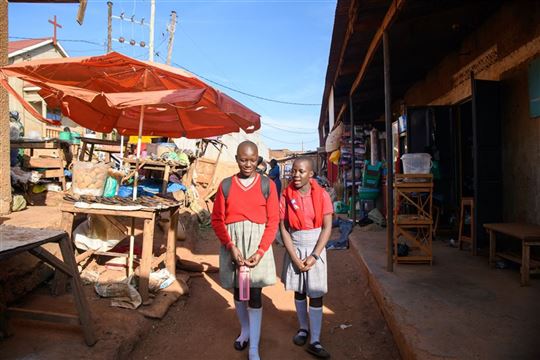
Another example is Florence, the mother of five children, almost all of whom receive Distance Support. When, a year ago, bandits killed Obote, her husband who was a janitor in a building, she stunned everyone at his funeral: "I forgive them, because they did not know what they were doing." "A mother who has such a position with respect to her children and community generates something unexpected," Repossi says, "It is a new mentality. And it is a new society, something that is born around them and that speaks to us as well. Think about what is happening in Ukraine or Gaza, where forgiveness seems impossible. Or our daily lives. What does such a thing communicate to us? Yet, without Distance Support we would not have encountered it."
INFO - AVSI's website
All of this does not take into account the other side of good: that experienced by those who help. "Close bonds are created with many of the families of supporters. Often, perhaps while on other trips, they stop by to visit the child. I do not remember anyone every saying 'Okay, nice, now let us go.' They stay connected." They discover a world they did not expect. Sometimes they extend their help beyond Distance Support scheme: "There was one supporter who, when he saw where the child's family lived, ended up funding a project to build public toilets so they could be used by the community." They often leave saying, "If I can, I will come back." And sometimes, back home, they end up becoming Distance Support ambassadors. As happened to Milena and Marco, university students who landed in Kampala for the "Summer Campus" (a three-week experience offered to students): back in Italy, they sparked word of mouth and a series of initiatives to sustain support. And to help the village grow, even from a distance.
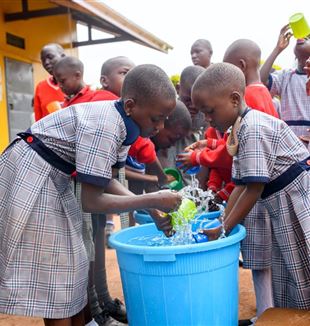 Life at school for children who are beneficiaries of distance support in Uganda (Photo: Emmanuel Museruka/Avsi)
Life at school for children who are beneficiaries of distance support in Uganda (Photo: Emmanuel Museruka/Avsi)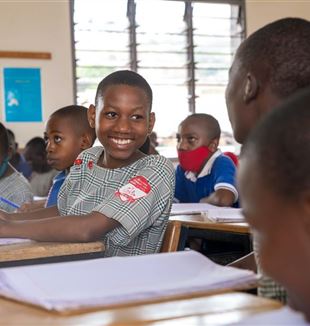 Life at school for children who are beneficiaries of distance support in Uganda (Photo: Emmanuel Museruka/Avsi)
Life at school for children who are beneficiaries of distance support in Uganda (Photo: Emmanuel Museruka/Avsi)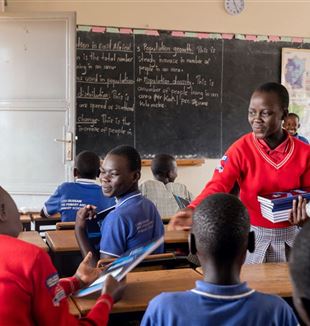 Life at school for children who are beneficiaries of distance support in Uganda (Photo: Emmanuel Museruka/Avsi)
Life at school for children who are beneficiaries of distance support in Uganda (Photo: Emmanuel Museruka/Avsi)